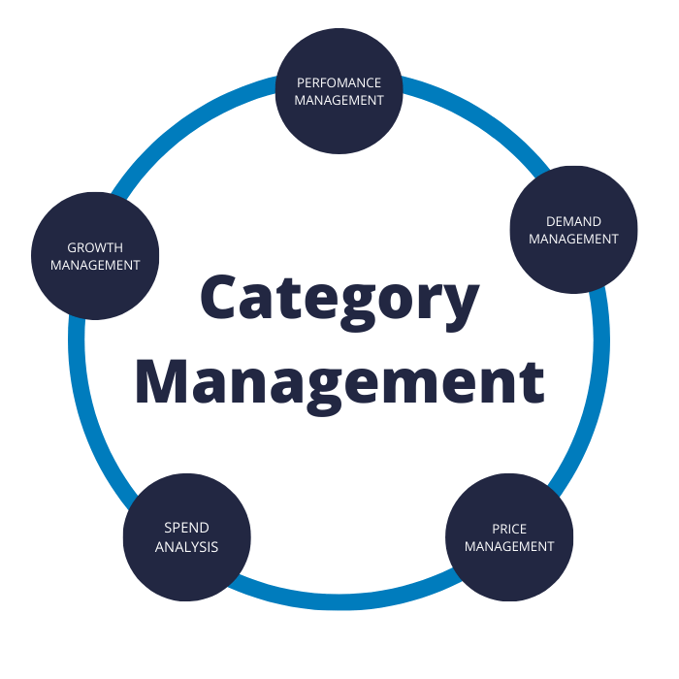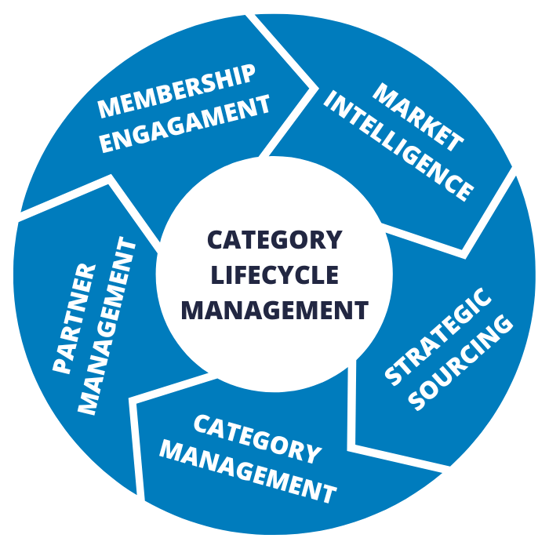Category management is vital in strengthening your strategic procurement process. Originally designed as a project-based approach to managing the sourcing of goods and services, category management has grown to include: spend management and analysis, market intelligence, corporate reporting and governance. It is supported by the right people, tools and technology. Category management is the basis for delivering procurement value to organizations, beyond just negotiating better prices.
The general principle is to group goods and services that have similar characteristics either using a global standard such as UN Standard Products and Services Code (UNSPSC) or an internal classification method. The categorization depends on the industry, procurement’s own organizational structure, spend profiles and the external marketplace. There is no correct way. A manufacturer of pumps and valves will categorize differently from an IT services company.

The Challenge
As procurement folks thrive in managing overall organizational spend, they simply cannot be experts on every category with their overloaded plate of priorities. While getting so much accomplished in their daily workloads, procurement teams don’t have the time or resources to dedicate to managing multiple categories. That can sometimes lead to procurement losing sight of tracking contract compliance and supplier performance. Without continual focus there are inevitably diminishing returns, price creep and unfulfilled service level agreements (SLAs).
The main objective is to manage each category and sub-category of spend holistically, through the entire procurement lifecycle. A well-managed category works on a lifecycle like this:
Organizations that are reactive in their procurement activities are now realizing that they are not getting the best value out of their third-party controllable spend. By processing day-to-day transactions without a category plan, you are probably paying too much for goods and services.
Those Complex Categories
Indirect spend in areas such as IT and telecommunications, facilities management, travel, and corporate services are becoming much more complex and require expertise. Keeping up with current market pricing, service and product innovations, new entrants and managing internal stakeholders is a full-time job for some.

IT and Telecommunications
Sourcing and contracting IT services is different from any other category. Where the function is mission-critical to company operations, e.g. in banks and insurance companies, procurement and sourcing professionals need to be fully immersed in the category and its subcategories and commodities which can include: IT products & services, unified communications, hardware, peripherals, servers, voice and network, warranties and maintenance. This category is developing into a career path of its own in companies where this spend category is vital to the success of the organization. In mid-size organizations where these services are important but not the main spend area, it can be a big learning curve and confusing because it is forever changing.
Human Resources
The HR category is becoming more complicated as we deal with revised approaches to the world of work, contingent labor and the application of new technologies. There is a constant drive by top management for cost savings which is challenging even for the most confident of HR professionals.
Corporate and Professional Services
This category group usually includes marketing, furniture and workspace, and office supplies. The trend is towards full price transparency which is a relief for procurement. However, the pricing models used by any consultancy still needs close review.
Fees can be:
- Project-based fees - where there are clearly defined deliverables and timelines, often with penalties and incentives
- Cost-plus (or Time and Expenses). These are open-ended fees, based on rate cards (hourly or daily rates per defined skill level). This method is difficult to manage and is subject to scope creep.
- Contingent fees. This is where the fee is dependent on pre-determined metrics or multiple performance milestones.
The Marketing category requires focus, stamina and patience. Digital has changed everything. Traditionally agencies have been the major recipients of marketing spend, some providing a one-stop service, maybe with no contract or service level agreement (SLA). The chosen agency would often oversee a wide portfolio including media buying, printed matter, brand management and public relations with poor price disclosure and hidden margins.
A GPO is Here to Help with Category Management
GPOs use a collaborative approach working with procurement teams that do not have the capacity, bandwidth or in some cases, the expertise to run their own category management. Procurement and the GPO’s job is not finished at contract signing. This is the time to build supplier relationships and monitor performance through the life of the contract.
Opportunities present themselves clearly when we understand the characteristics of each commodity that we are sourcing:
- The spend: current spend by supplier, by business user, by location
- The service: its content, features, issues, constraints, user preference
- The cost: the purchase price, total cost of ownership (TCO)
- The market: supplier capability, benchmark, new entrants
OMNIA Partners has an established category management structure that provides support for members in both direct and indirect procurement fields across any industry.
Breaking Down the 5 Principles of Category Management
Our Team is Here to Help With:
| Supplier Performance Management | We monitor, measure and improve our agreements with our supplier partners. |
| Demand Management | Our market intelligence and research help you select the right suppliers and stay competitive |
| Price Management | We benchmark and verify prices, so you have peace of mind that you have got the best deal. |
| Spend Analysis | We analyze historical spend so you can make the best sourcing choices. |
| Growth Management | We analyze so you can make the best decisions. |
Streamline your sourcing processes and bring increased value to your business by enabling it to operate more efficiently with less effort across the board. At OMNIA Partners, we put time back on your side and ensure you gain access to high-quality, thoroughly vetted suppliers that are committed to delivering on time, every time, at the best possible price. Learn more about our category offerings.
- TAGS:
- Procurement
- , Corporate
- , Enterprise